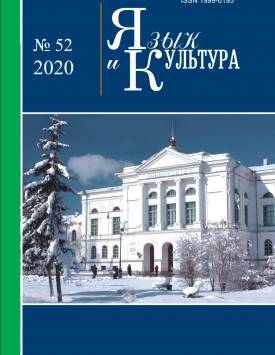Brexit: Life of the Word in Political Discourse
The study of the word Brexit denoting the withdrawal of the United Kingdom from the European Union showcases the evolution of this notion in modern political discourse when the tiniest details of linguistic expression are used as means of manipulation. For linguists, these changes in political discourse call for new approaches to in-depth text interpretation. The paper analyses the origin of the word Brexit, its derivatives and their connotations, as well as numerous neologisms produced by “the war of words” and reflecting the attitude of Brexit supporters and opponents. The investigation also deals with the stylistic means and visual semiotics of Brexit and its influence on European cultures in the form of new trademarks, theatre performances, board games, street names, etc. The final part of the paper is devoted to the impact of Brexit on the further development of English which, on exit from the EU, looses the status of its official language and retains the position of a working language.
Keywords
Brexit,
political discourse,
semantic field,
neologisms,
connotation,
semioticsAuthors
| Leontovich Olga A. | Volgograd State Socio-Pedagogical University; Tianjin Foreign Studies University | olgaleo@list.ru |
Всего: 1
References
Алиева Т.В. Референдум Брексит: языковые средства актуализации оппозиции «свой - чужой» // Вестник Московского государственного областного университета. Серия: Лингвистика. 2017. № 3. С. 8-13.
В России термин «brexit» стал словом года по итогам интернет-голосования // РИА Новости. 21.12.2016. URL: https://ria.ru/20161221/1484220486.html (дата обращения: 15.02.2020).
Дьякова Е.Ю. Использование социально-политического феномена Brexit в создании имиджа британских университетов // Вестник Воронежского государственного университета. Серия: Лингвистика и межкультурная коммуникация. 2019. № 2. С. 28-33.
Катермина В.В., Соловьева Н.С. Аксиология неологизма Brexit в англоязычном массмедийном дискурсе // Актуальные проблемы филологии и педагогической лингвистики. 2019. № 3. С. 103-111.
Каштанова И.И., Бирюкова О. А., Давыдова Е.А. Концепт Brexit в современном англоязычном медиадискурсе // Филологические науки. Вопросы теории и практики. 2018. № 10, ч. 2. С. 295-299.
Кропотухина П.В. Концептуальные метафоры кризисного дискурса Великобрита нии // Политическая лингвистика. 2017. № 2 (62). С. 94-99.
Lalic-Krstin G., Silaski N. From Brexit to Bregret. An account of some Brexit-induced neologisms in English // English Today 134. June 2018. Vol. 34, № 2. URL: https://www.cambridge.org/core/services/aop-cambridge-core/content/view/S026607 8417000530 (дата обращения: 14.10.2019).
The Language of Brexit. Dr Graeme Davis discusses the etymology of the word 'Brexit' // OpenLearn. 2017. 5th January. URL: https://www.open.edu/openlearn/languages/english-language/the-language-brexit (дата обращения: 14.10.2019).
Brexit’s my fault: How the word I invented could be an epitaph for the nation's decline // Sky News. Thursday. 2018. 13 December. URL: https://news.sky.com/story/brexits-my-fault-how-the-word-i-invented-could-be-an-epitaph-for-the-nations-decline-11576816 (дата обращения: 15.12.2019).
Mardell M. What does 'Brexit means Brexit' mean? // BBC News. 2016. 14 July. URL: https://www.bbc.com/news/uk-politics-36782922 (дата обращения: 23.11.2019).
3 years of Brexit promises in Theresa May's own words - from 'Brexit means Brexit' to 'I won't stand in the way' // Business Insider. The Associated Press. 2019. Mar 30. URL: https://www.businessinsider.com/theresa-may-in-quotes-from-brexit-means-brexit-to-i-quit-2019-3 (дата обращения: 10.02.2020).
Werber C. How Brexit is changing the English language // QUARTZ. 2019. October 29. URL: https://qz.com/1737484/brexit-is-changing-the-english-language/ (дата обращения: 24.11.2019).
From backstop to Brino, AP translates the language of Brexit // The Associated Press. 2019. April 9. URL: https://apnews.com/c563032864514bc9932a390bfac49c4b (дата обращения: 12.11.2019).
Moseley T. The rise of the word Brexit // BBC News. 2016. 25 December. URL: https://www.bbc.com/news/uk-politics-37896977 (дата обращения: 14.01.2020).
Fox K. Watching the English. London : Hodder, 2004.
Browne V. Brighton shoppers outraged by cheesemonger selling 'Brexit Blue' // The inews UK. 2017. 5th October. URL: https://inews.co.uk/inews-lifestyle/food-and-drink/shop-stocking-brexit-blue-cheese-outrages-customers-519441 (дата обращения: 25.01.2020).
Brexit Biscuit Today. URL: https://www.brexit-biscuit.co.uk/ (дата обращения: 22.02.2020).
Nsubuga J. EU rejects trademark for ‘offensive’ Brexit energy drink // Metro. 2019. May. URL: https://metro.co.uk/2019/05/16/eu-rejects-trademark-offensive-brexitenergy-drink-9563721/ (дата обращения: 24.02.2020).
Brexit-exit: B-word banned from No 10 // The Sunday Times. 2019. December 29. URL: https://www.thetimes.co.uk/article/brexit-exit-b-word-banned-from-no-10-vhbtpb3rr (дата обращения: 15.01.2020).
Don't mention the B-wordi Britain makes 'Brexit' taboo // The Straits Times. 2020. JAN 7. URL: https://www.straitstimes.com/world/europe/dont-mention-the-b-wordbritain-makes-brexit-taboo (дата обращения: 05.02.2020).
Brexit: the demise of English as an international language? // Pangeanic. URL: https://www.pangeanic.com/knowledge_center/brexit-the-demise-of-english-as-an-international-language/ (дата обращения: 11.02.2020).
Crystal D. English as a Global Language. Cambridge [England] ; N.Y. : Cambridge University Press, 1997.
Setter J. Will Brexit spell the end of English as an official EU language? // The Guardian. 2019. Fri. 27 Dec. URL: https://www.theguardian.com/commentisfree/2019/ dec/27/brexit-end-english-official-eu-language-uk-brussels (дата обращения: 10.02.2020).

